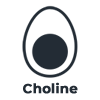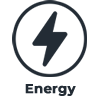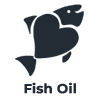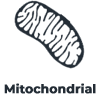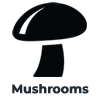Now this is a bit of a strange one, right? Why would an energy promoting supplement also help promote sleep? Well, this is not entirely uncommon. For example we have found that Uridine may help promote energy levels, but it may also help promote sleep quality. This is why we formulated our sleep support formula with Uridine. With NMN however, it is somewhat unclear as to how it is helping promote sleep quality but we do have some solid leads. Fair warning, this is about to get a little bit complex, but this may also be the first time this topic has been discussed in much detail besides loose anecdotal reports.
As we have talked about in some of the other sections, NMN turns into NAD+, and NAD+ is used as a fuel source by Sirtuin signalling proteins. Now it seems that the Sirtuins are highly involved in our circadian rhythm, and likewise NAD+ is also highly involved in our circadian rhythm. In fact, NAD+ levels appear to go up and down in a rhythmic fashion and it appears that this rhythm is being generated by various circadian clock genes. This is where it starts getting interesting, as another circadian rhythm regulator, melatonin, also appears to interact with sirtuins. Melatonin, however, does the exact opposite of NAD+ and instead of activating sirtuins appears to inhibit sirtuins. This appears to be very important for our circadian rhythm as sirtuins control certain aspects of wakefulness, especially SIRT1.
SIRT1 appears to enhance the function of various wakefulness promoting neurons, such as catecholaminergic and orexigenic neurons. With this in mind, it is thought that activation of SIRT1 could lead to wakefulness, with the opposite occurring during inhibition. This is why it is important to note that melatonin appears to be a SIRT1 inhibitor. However, this is where it gets confusing because we are taking NMN to promote NAD+ formation, and NAD+ is a SIRT1 activator. This likely explains to a certain degree the sense of energy and wakefulness you can experience after taking an NMN supplement. However, it does not explain the reports of increased sleep quality that are associated with NMN supplementation. That being said, in almost all anecdotal reports of NMN, there is mention of better sleep quality. So we decided to dig a little bit deeper and found some fascinating information…
When we take NMN, it is quickly transformed into NAD+, which is then used up by sirtuins. In the process of NAD+ getting used up, it forms various metabolites such as nicotinamide. Nicotinamide in particular is important here, as it is an inhibitor of SIRT1, yet it also gets turned back into NMN via the salvage pathway. This regenerated NMN then turns into NAD+ which activates SIRT1. Now this is where circadian control comes into play. During the day, when we supplement with NMN, we will see an elevation in NAD+ levels and SIRT1 activity. We will also see more activity in the salvage pathway that turns nicotinamide back into NAD+, due to there being more available nicotinamide. In the salvage pathway, nicotinamide is turned into NMN by a rate limiting enzyme called nicotinamide mononucleotide adenylyltransferase (NAMPT). It appears that NAMPT is under strict circadian control, with levels being highest during waking and lowest during sleep. This means that by taking an NMN supplement during the day, we may have higher nicotinamide levels floating around at night when NAMPT activity goes down, which ultimately means less SIRT1 activity due to decreased synthesis of NMN and NAD+. As we talked about earlier, less SIRT1 activity, may also correlate to decreased wakefulness and would go hand in hand with the effects of melatonin. Overall, this is just a theory, however it logically appears to make sense and explains why anecdotal reports all appear to suggest sleep promoting effects after NMN supplementation.


